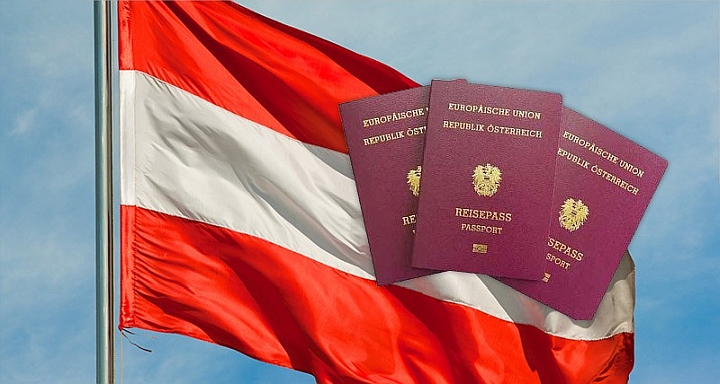I constantly strive to develop and acquire new knowledge, my experience and additional education confirm this.
Аustrian citizenship
Migration processes in Austria also have their own characteristics and effects on the country's society and economy. Here are some key aspects of migration in Austria:
Economic migration:
Many foreigners come to Austria in search of work and better economic opportunities. This may include highly skilled labor as well as workers in low-wage sectors such as construction, tourism and others.
Education and research:
Austria is an attractive country for international students who come here for higher education or research at leading universities and research institutions.
Refugees and international protection:
Austria also hosts refugees and persons in need of international protection and plays an important role in the reception and integration of these persons.
Family migration:
Family members of Austrians or other persons already living in Austria may be granted the right to enter and reside in the country.
Integration and cultural exchange:
An important aspect of migration is the process of integration of foreigners into Austrian society, as well as cultural exchange and mutual understanding between different cultures and groups.
The Austrian government regulates migration processes through legislation and programs aimed at integrating migrants and ensuring their successful impact on the country's economy and society. Measures to combat illegal migration and ensure the safety of migration flows are also an important part of the migration policy.
Obtaining Austrian citizenship can be a complex process and require certain conditions to be met. Here are some general steps that can help you get Austrian citizenship:
Residence:
Normally, you must have a legal and continuous residence in Austria for a certain period of time. This period can vary depending on your circumstances, but is usually several years.
Depending on the length of your stay in the country, you can also apply for citizenship. For example, after 10 years of residence and 5 years of permanent residence, you can apply for citizenship if you have B1 German and a basic knowledge of Austrian culture and history.
If you are the spouse of Austrian citizens and have lived together in a legal marriage for 5 years, you can also apply for citizenship after 6 years of residence in Austria.
Language requirements:
You may be required to pass a language test or prove your proficiency in German, which is the official language of Austria. If you are expected to live in Austria for 6 years, speak German at B2 level and have demonstrated high integration into Austrian society, you can apply for citizenship.
Integration:
You may need to prove your integration into Austrian society, including your familiarity with Austrian culture, history and the legal system.
Financial conditions:
You may have to prove your financial stability and the ability to support yourself and your family without the need for government assistance.
Prepare the documents:
You will need various documents such as passport, residence permit, birth certificate, marriage certificate and other documents confirming your status and identification.
Apply:
Once you have met all the requirements, you should apply for Austrian citizenship according to the established procedures.
Wait for the decision:
After submitting your application, you will need to wait for a decision from the Austrian authorities. If your application is approved, you will receive Austrian citizenship.
Please note that these are general steps and requirements may vary depending on your specific situation and other factors. It is recommended to contact the migration services or a legal consultant for detailed information and support in the process of obtaining Austrian citizenship. Ukrainians can also get Greek citizenship.

































